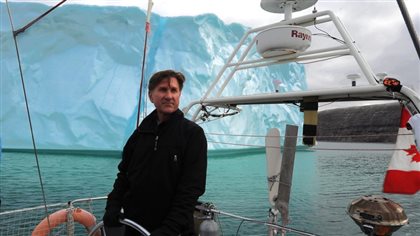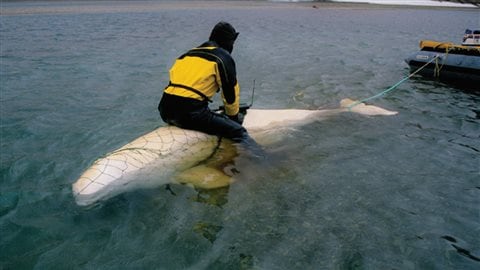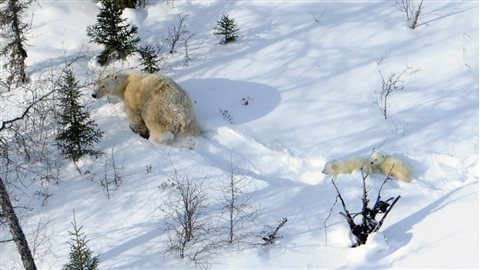While many people have heard of changes happening in the Arctic over the past few short decades, one man has been seeing them happen first hand.
Edmonton, Alberta-based author, journalist, photographer Ed Struzik had spent some 35 years on scientific reporting throughout the Arctic Circle and has written extensively about it. His previous non-fiction book was called the Big Thaw, travels in the melting Arctic, published in 2009.
His latest book builds on that earlier work and on the increased knowledge and evidence of global warming, and on the dramatic changes that have taken place in the Arctic environment just in the past few years.
It also suggests that planning should take place now to cope with those changes and the now inevitable future changes in order to avoid some potentially nasty surprises.
It’s called “Future Arctic- Field notes from a world on edge”, published by Island Press Listen

Struzik notes that the Arctic of thousands of years of lore and legend that we knew, is rapidly disappearing and will soon be gone forever. He points out that changes to the Arctic brought about by anthropogenic warming causing climate change are dramatic. “Very very serious economic, cultural and environmental problems” Rising salty seas on one hand, and diminished fresh water flow from mountain snowback on the other, could soon see two-thirds of the Mackenzie Delta’s lakes could dry up by mid century. The lakes, ponds streams and wetlands of the Delta constitute one of the single most important nesting grounds for birds and for other wildlife, in the world. Thousands of lakes and wetland areas will dry up, while plant killing salt water pushes further upstream. Forest fires from the boreal forest and tundra are increasing and themselves create a feedback loop as the ash darkens ice surfaces around the circumpolar region, increasing melting of the ice and so heat retention in the air and sea, while also contributing to sea level rise. While some species may likely thrive in a warmer Arctic, other affects are that the retreating ice is already enabling orcas to move into northern waters where they had never hunted before, to find easy prey of already endangered narwhal and beluga.

Southern fish are moving north as well, and larger marine mammals with them. Along with them come southern diseases against which many species such as the beluga, narwhal and others have no or almost no immunity. Animals like polar bears may in turn eat infected carcasses and spread the pathogens further, including into humans. Struzik says plans to develop the north in the search for resources is one thing, but to do so with such little preparation for accidents, and so little understanding of the effects on the polar environment with ripple effects on the global environment, is foolhardy.

He says the changes are happening and without planning for them, “it could result is some very very serious economic, cultural and environmental problems” The last line of this scientifically reviewed book reads, “The so-called –Age of the Arctic-may well be here, but unless action is taken soon, there will continue to be surprises for which we are not prepared.







For reasons beyond our control, and for an undetermined period of time, our comment section is now closed. However, our social networks remain open to your contributions.